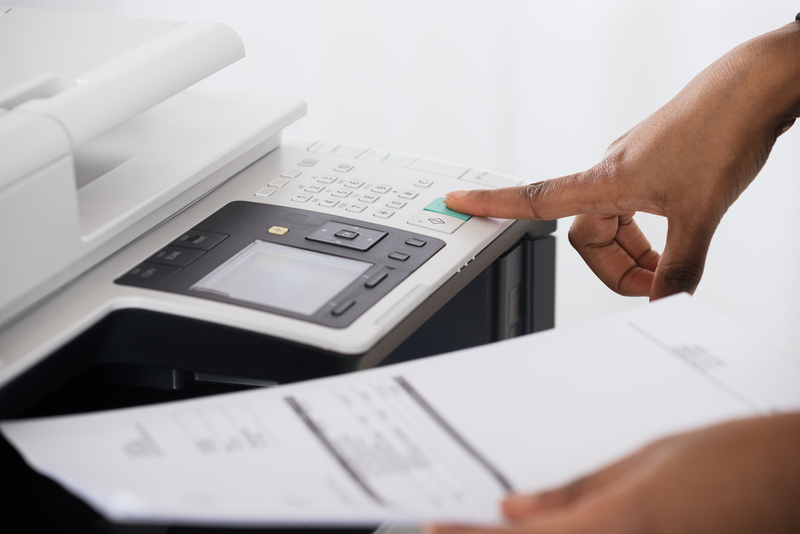How to Lower Your Expenses When Dealing with Bulky Waste
Bulky waste disposal can be a heavy burden--both literally and figuratively--on your wallet. Whether you're renovating, spring cleaning, or moving house, getting rid of oversized items like old furniture, appliances, and mattresses can quickly become costly. But, are you aware that there are numerous ways to cut down your bulky waste costs? In this comprehensive guide, we'll explore practical, actionable strategies that can help you lower your bulky waste expenses without sacrificing convenience or the environment.
Understanding Bulky Waste and Its Associated Costs
Before you start decluttering, it's important to understand exactly what is considered bulky waste and why its disposal can be expensive. Bulky waste includes items too large for regular curbside collection--think mattresses, white goods, sofas, garden furniture, and similar large objects.
Disposing of these items often incurs additional fees due to their size, the need for special handling, or environmental regulations. These expenses can add up fast, especially for households or businesses managing several items at once.
Common Charges for Bulky Waste Disposal
- Municipal disposal fees
- Hiring private waste removal companies
- Landfill tipping fees
- Recycling facility charges
- Disposal permits

Assess What Needs Removing
Before arranging for a costly pickup, take stock of what you actually need to get rid of. Not every item is truly bulky or must be taken to the dump.
Inventory Your Bulky Items
- Go room-by-room and make a list of all large items.
- Consider their condition--could anything be repaired, reused, or repurposed?
- Identify which items are truly waste versus those that are simply unwanted.
Explore Free or Low-Cost Disposal Alternatives
Several services offer alternatives to the usual expensive bulky waste removal options. Here's how to reduce your costs by using various free or affordable solutions:
Take Advantage of Municipal Collection Days
- Most cities offer annual or biannual free bulky waste collections.
- Check your local government's waste management website for schedule details.
- Plan your decluttering around these dates to eliminate disposal fees.
Drop Off at Community Recycling Centers
- Many recycling centers accept large items for free or at a significantly reduced rate.
- Verify which items are accepted--most will take appliances, scrap metal, or electronics.
Ask About Appliance or Furniture Retailer Take-Back Programs
- If you're replacing an old item, many retailers offer free take-back services on delivery of a new one.
- Some brands run trade-in or recycling initiatives.
Sell, Donate, or Repurpose Before Disposing
One of the most effective ways to lower your bulky waste disposal costs is to avoid disposal altogether! Consider if your "waste" might be someone else's treasure.
Sell Usable Items
- List your items on online marketplaces such as Facebook Marketplace, Craigslist, eBay, or Gumtree.
- Host a garage or yard sale, especially during community sale weekends.
- Some second-hand stores may even pick up larger items for free.
Donate to Charities and Nonprofits
- Many organizations, like Habitat for Humanity ReStores or the Salvation Army, accept furniture and appliances in good condition.
- Some charities will collect large donations for free.
- Donating is both eco-friendly and cost-saving!
Repurpose or Upcycle
- Get creative: turn old furniture into garden beds or art projects.
- Online DIY sites offer plenty of upcycling ideas for everything from doors to dressers.
Plan and Bundle Bulky Waste for Collection
If you do need to arrange for a bulky waste pickup, some smart planning can help you save money:
Bundle Your Items Together
- Many private or municipal waste services charge by volume or load.
- Coordinate with neighbors or friends to group items--splitting a truckload can dramatically lower costs per household.
- Ask if flat-rate pricing applies to multiple items and maximize what you put out at once.
Disassemble Large Items
- Break down furniture or appliances to reduce the space they occupy.
- Lighter, less bulky loads mean cheaper collection fees.
- Verify with the pickup provider what items or sizes are accepted.
Compare Bulky Waste Removal Services
If you need professional help, don't automatically settle for the first quote you receive. Compare rates and services:
Get Multiple Quotes
- Contact several companies ({big waste brands and local haulers) for estimates.
- Ask about minimum charges, additional fees, and included services (such as labor and disposal).
Check for Discounts
- Some services offer seasonal promotions, coupons, or reduced rates for seniors, veterans, or low-income families.
- Check online for local deals on bulk waste removal in your area.
Renting a Dumpster: Is It Worth the Cost?
For very large-scale cleanouts, renting a dumpster can be an effective strategy to lower your bulky waste expenses. Here's what to consider:
- Dumpster rentals are often priced based on volume and duration.
- Compare the cost of multiple disposal trips versus a single dumpster rental.
- Coordinate with neighbors, friends, or family to share the dumpster and split the overall cost.
- Avoid overfilling or adding prohibited items, which may incur extra penalties.
Handle Bulky Waste Responsibly and Sustainably
Disposal doesn't have to mean landfill. You can save money and protect the environment with sustainable practices:
Recycle Whenever Possible
- Metals, electronics, and certain plastics from bulky items can be recycled.
- Check local facilities--some offer discounts or payments for recyclable materials, further offsetting your costs.
Participate in Community Cleanup Events
- Local councils or environmental groups often coordinate free or low-cost bulky waste collections as part of neighborhood clean-up campaigns.
- Volunteering may even earn you waived disposal fees!
Avoiding Hidden Fees and Common Mistakes
Don't let your savings evaporate with unexpected charges. Here's how to avoid costly mistakes:
- Always clarify what is included in a service provider's quote.
- Don't place forbidden items (like hazardous chemicals) in your bulk waste, as this can result in fines.
- Understand your municipality's rules to avoid penalties for improper disposal or illegal dumping.
DIY Bulky Waste Removal: Pros and Cons
Doing it yourself can be the cheapest option, but it's not always practical.
- Factor in time, effort, and risk of injury when moving heavy or awkward items.
- Consider renting a van or truck for one-time large loads--it may be cheaper than a paid pickup.
- Ask friends or family to help; shared labor cuts both time and cost.
Summary: Best Ways to Lower Bulky Waste Removal Expenses
To lower your bulky waste disposal expenses, remember to:
- Sort your items to reduce waste and identify sale/donation opportunities.
- Use free city collection days and local drop-off points where possible.
- Bundle or coordinate pickups to maximize loads and split costs.
- Shop around for professional services and leverage discounts.
- Consider sustainable options like recycling and repurposing.
By following these tips, you'll not only save money but also contribute to your community and the environment.

Frequently Asked Questions about Bulky Waste Cost Savings
What is the cheapest way to get rid of bulky waste?
The cheapest methods are utilizing free municipal pickup days, donating usable items, or dropping off at local recycling centers. Sometimes, you can even make money by selling items online or at a garage sale!
Is it legal to leave bulky items by the curb?
Each municipality has its own rules. Placing bulky waste outside of designated days or without proper arrangements can result in fines. Always check city guidelines first.
Can I recycle all types of bulky waste?
While many items--like metal appliances and some electronics--are recyclable, others may not be. Ask your local facility what items are accepted and if there's a fee involved.
Are there eco-friendly ways to dispose of bulky items?
Absolutely! In addition to traditional recycling, consider donating, repurposing, and upcycling to keep items out of landfills and save on costs.
Conclusion
Disposing of large, unwanted items doesn't have to drain your finances. By leveraging free community resources, planning your pickups, selling or donating usable goods, and comparing service rates, you can significantly lower your bulky waste expenses. Better still, sustainable disposal options not only help your wallet but also benefit your local environment. With a little effort and resourcefulness, bulky waste management can be efficient, affordable, and eco-friendly.